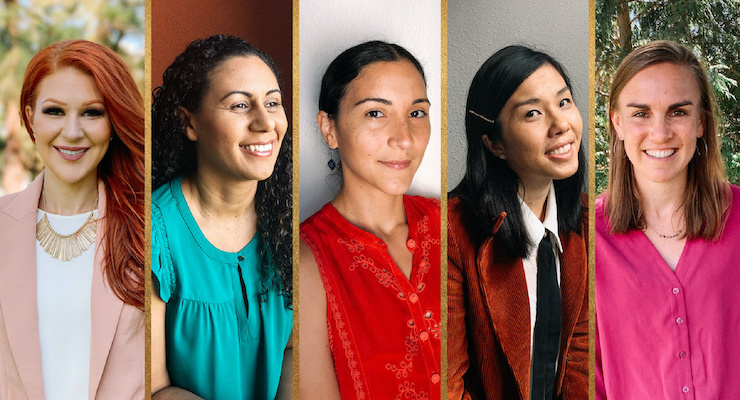Beauty Packaging Staff11.16.20
L'Oréal USA announced the recipients of its 2020 For Women in Science (FWIS) Fellowship.
The annual program awards five female postdoctoral scientists grants of $60,000 each to advance their research. Now in its 17th year, the For Women in Science program has recognized 85 postdoctoral female scientists and contributed over $4 million to the advancement of critical research in fields as diverse as neurobiology, metabolic diseases, physics and material science, integrative biology, and biomedical engineering.
The For Women in Science program is rooted in L'Oréal's core belief that the world needs science and science needs women, because women in science have the power to change the world. The program provides funding and support during a critical time in female scientists' careers.
"L'Oréal USA's2020 For Women in Science Fellows represent a depth of expertise across the scientific spectrum, and we are inspired by the world-changing work they are doing," said Danielle Azoulay, Vice President of Corporate Social Responsibility & Sustainability, L'Oréal USA. "At a time in which we are constantly reminded of the importance of science, it is all the more critical to be supporting the representation of women in STEM."
The 2020 For Women in Science fellows are being honored for their important research across a wide range of fields, from Integrative Biology to Material Science & Engineering
- Cara Brook, whose research in Integrative Biology at the University of California-Berkeley, focuses on understanding wild bats to illuminate pathways involved in mammalian disease and aging. Currently, Cara's emphasis is on the Coronavirus (Covid-19) and seeking development of therapeutics to combat these processes in the human population.
- Wendy Brown, whose research in Biomedical Engineering at the University of California – Irvine, focuses on growing cartilage from cells in anatomical shapes and sizes for surgical implantation. Her research seeks to help millions of people around the world with facial damage due to cancer, burns, congenital defects, or other physical trauma.
- Kayla Nguyen, whose research in the field of Physics and Material Science and Engineering at the University of Illinois Urbana-Champaign, is dedicated to taking pictures of the smallest building block in the universe—the atom—using a tool called the electron microscope. Taking increasingly detailed, higher resolution images of atoms promises to improve drug delivery systems, quicken computer processing, and make fuel cell cars more accessible, to name a few examples.
- Nancy Padilla-Coreano, whose research in Systems Neurobiology at The Salk Institute of Biological Studies – San Diego, explores how the brain encodes social dominance. Understanding how the healthy brain encodes social information, and how circuits control social behavior, can aid the development of potential therapies for social deficits.
- Silvania da Silva Teixeira, whose research in metabolic diseases at the University of Colorado, focuses on the treatment of late-stage Type 2 Diabetes (T2D) by stimulating insulin secretion with a daily pill instead of managing insulin levels with daily injections. The proposed research can positively affect the quality of life of millions of Americans.
The L'Oréal USA For Women in Science program is the U.S. component of the L'Oréal-UNESCO For Women in Science International Awards, a global program created in 1998 that recognizes and rewards women scientists around the world. Through the international program and the nearly 50 national and regional programs—which includes the For Women in Science program—more than 3,400 female scientists from 116 countries have received fellowships to pursue promising research projects.




























